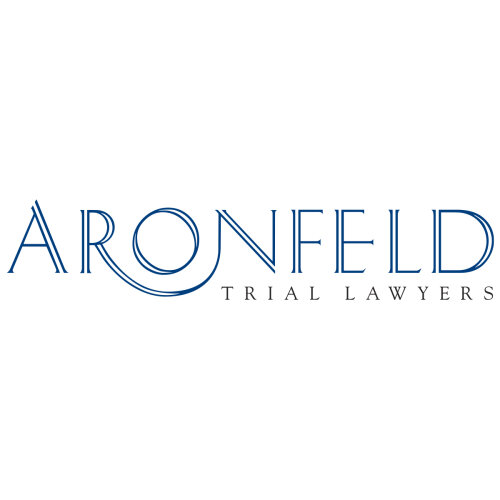Best Restructuring & Insolvency Lawyers in Florida
Share your needs with us, get contacted by law firms.
Free. Takes 2 min.
Or refine your search by selecting a city:
List of the best lawyers in Florida, United States
About Restructuring & Insolvency Law in Florida, United States
Restructuring and insolvency law in Florida deals with the legal processes that allow individuals and businesses experiencing financial hardship to reorganize, liquidate, or otherwise resolve their debts. The law is designed to provide relief to debtors who can no longer pay their debts, while also protecting creditors' rights. In Florida, restructuring may involve negotiating payment terms with creditors, while insolvency usually refers to formal proceedings such as bankruptcy. Both state and federal laws govern these processes, but most bankruptcy cases are handled in federal courts under the U.S. Bankruptcy Code. Florida-specific regulations and exemptions also play a significant role in how these cases are managed.
Why You May Need a Lawyer
Legal assistance is often crucial for those facing restructuring or insolvency in Florida. Here are common situations where a lawyer's guidance can be invaluable:
- You are overwhelmed by personal or business debts and need advice on your best options.
- A creditor has initiated a lawsuit or collection proceedings against you or your business.
- Your business is struggling financially and you want to explore options for restructuring debt or liquidating assets.
- You are considering filing for bankruptcy, either as an individual or as a business entity.
- You need help negotiating with creditors to reach repayment agreements or debt settlements.
- You want to protect exempt assets such as your home or retirement accounts under Florida law.
- You suspect fraudulent or improper conduct by a debtor or trustee and want to ensure your legal rights are protected.
An experienced restructuring and insolvency lawyer can provide guidance, help you avoid costly mistakes, and represent your interests throughout the process.
Local Laws Overview
Restructuring and insolvency procedures in Florida are shaped by a combination of federal bankruptcy law and state-specific statutes and regulations. Most personal and business bankruptcies are handled under the U.S. Bankruptcy Code in federal court. However, Florida law determines which assets you may protect (exempt) when filing for bankruptcy. Key aspects include:
- Homestead Exemption: Florida offers one of the strongest homestead exemptions in the country, allowing you to protect the full value of your primary residence if you meet residency requirements.
- Personal Property Exemptions: Florida law exempts certain amounts of personal property, such as vehicles, wages, and retirement accounts.
- Types of Bankruptcy: Individuals often file for Chapter 7 (liquidation) or Chapter 13 (reorganization). Businesses usually consider Chapter 7 or Chapter 11 (business reorganization).
- Assignment for the Benefit of Creditors (ABC): Florida recognizes ABCs as an alternative to bankruptcy for business entities wishing to wind down operations and pay creditors.
- Creditor Rights: Florida law regulates how creditors may pursue collections, including garnishments and liens, and provides remedies for fraudulent transfers.
- Foreclosure Procedures: Florida is a judicial foreclosure state, requiring court involvement for foreclosure actions, giving homeowners additional procedural protections.
Because these laws interact and can be highly complex, it is essential to seek legal guidance specific to your situation.
Frequently Asked Questions
What is the difference between restructuring and insolvency?
Restructuring generally refers to reorganizing a company’s or individual’s finances to avoid insolvency or bankruptcy, often through negotiations with creditors. Insolvency means being unable to pay debts as they come due, which may lead to formal bankruptcy proceedings.
Which bankruptcy chapters are commonly used in Florida?
Individuals commonly file under Chapter 7 (liquidation) or Chapter 13 (reorganization). Businesses may file under Chapter 7 or Chapter 11 (business reorganization).
What assets can I keep if I file for bankruptcy in Florida?
Florida law allows you to exempt your primary residence (homestead exemption), certain personal property, some pension and retirement benefits, and a vehicle up to a specific value. Exemption amounts and eligibility vary, so you should consult an attorney for details.
How does the Florida homestead exemption work?
If you have owned and lived in your Florida home for at least 1,215 days before filing for bankruptcy, the entire value of your home may be protected from creditors, regardless of equity.
What happens to co-signed loans if I file for bankruptcy?
While your liability for the debt may be discharged, co-signers may still be responsible for repayment. Some bankruptcy types provide options to protect co-signers.
Can a creditor continue collection efforts after I file for bankruptcy?
Once you file for bankruptcy, an automatic stay goes into effect that stops most collection actions by creditors, including lawsuits, wage garnishments, and foreclosures.
What is an Assignment for the Benefit of Creditors in Florida?
An Assignment for the Benefit of Creditors (ABC) is a state court alternative to bankruptcy for businesses. It involves transferring assets to an assignee who liquidates them to pay creditors.
Will bankruptcy affect my credit?
Bankruptcy will be listed on your credit report for up to 7-10 years and may lower your credit score. However, it can also give you a fresh start and the opportunity to rebuild credit over time.
Do I need a lawyer to file for bankruptcy in Florida?
While it is possible to file without a lawyer, the process can be complex and mistakes may be costly. Legal guidance is strongly recommended to protect your interests.
Are there alternatives to bankruptcy?
Yes. Alternatives include debt settlement, restructuring agreements, negotiated payment plans, and, for businesses, an Assignment for the Benefit of Creditors. A lawyer can help you evaluate your options.
Additional Resources
Consider these resources for further information and assistance regarding restructuring and insolvency in Florida:
- United States Bankruptcy Court for the Southern, Middle, and Northern Districts of Florida
- Florida Bar Association - Lawyer referral and consumer information on bankruptcy
- Florida Office of Financial Regulation
- Legal Aid of Broward County and other local legal aid organizations
- National Foundation for Credit Counseling (NFCC)
- Federal Trade Commission (FTC) - Consumer advice on debt and bankruptcy
Next Steps
If you are facing financial difficulties or considering restructuring or insolvency, consider the following steps:
- Gather all pertinent financial documents, including a list of debts, assets, property deeds, and recent statements.
- Review your situation and consider your goals, such as retaining your home, protecting specific assets, or discharging as much debt as possible.
- Schedule a consultation with a Florida attorney who specializes in restructuring and insolvency. Many lawyers offer free or low-cost initial consultations.
- Ask about potential strategies available to you, including both bankruptcy and non-bankruptcy options.
- Stay organized and follow your lawyer’s advice through each stage of the process.
- Make use of the educational and support resources recommended above.
Acting early and with the help of a knowledgeable attorney can provide the best chance of minimizing stress and protecting your financial future in Florida.
Lawzana helps you find the best lawyers and law firms in Florida through a curated and pre-screened list of qualified legal professionals. Our platform offers rankings and detailed profiles of attorneys and law firms, allowing you to compare based on practice areas, including Restructuring & Insolvency, experience, and client feedback.
Each profile includes a description of the firm's areas of practice, client reviews, team members and partners, year of establishment, spoken languages, office locations, contact information, social media presence, and any published articles or resources. Most firms on our platform speak English and are experienced in both local and international legal matters.
Get a quote from top-rated law firms in Florida, United States — quickly, securely, and without unnecessary hassle.
Disclaimer:
The information provided on this page is for general informational purposes only and does not constitute legal advice. While we strive to ensure the accuracy and relevance of the content, legal information may change over time, and interpretations of the law can vary. You should always consult with a qualified legal professional for advice specific to your situation.
We disclaim all liability for actions taken or not taken based on the content of this page. If you believe any information is incorrect or outdated, please contact us, and we will review and update it where appropriate.
Browse restructuring & insolvency law firms by city in Florida
Refine your search by selecting a city.
















